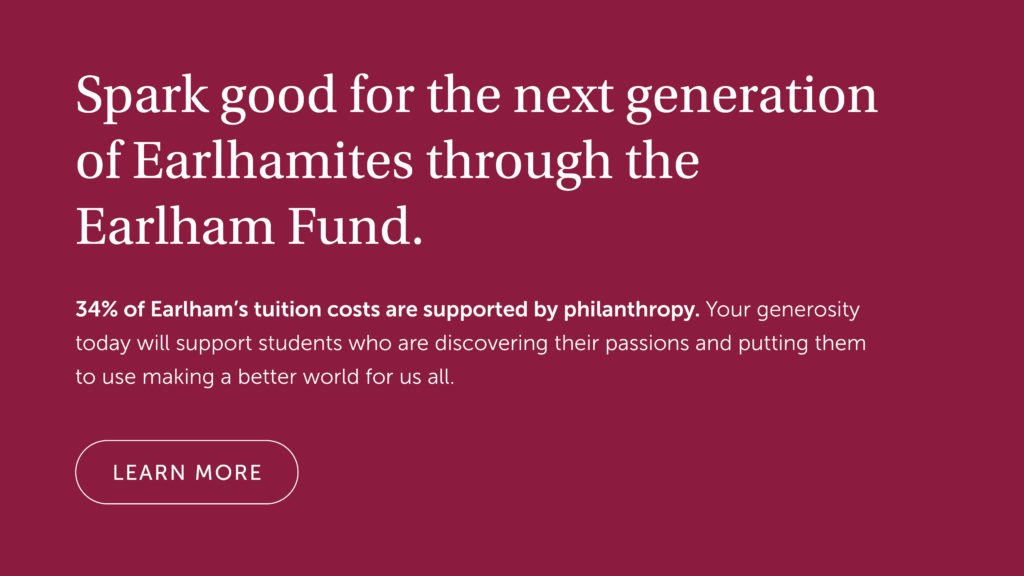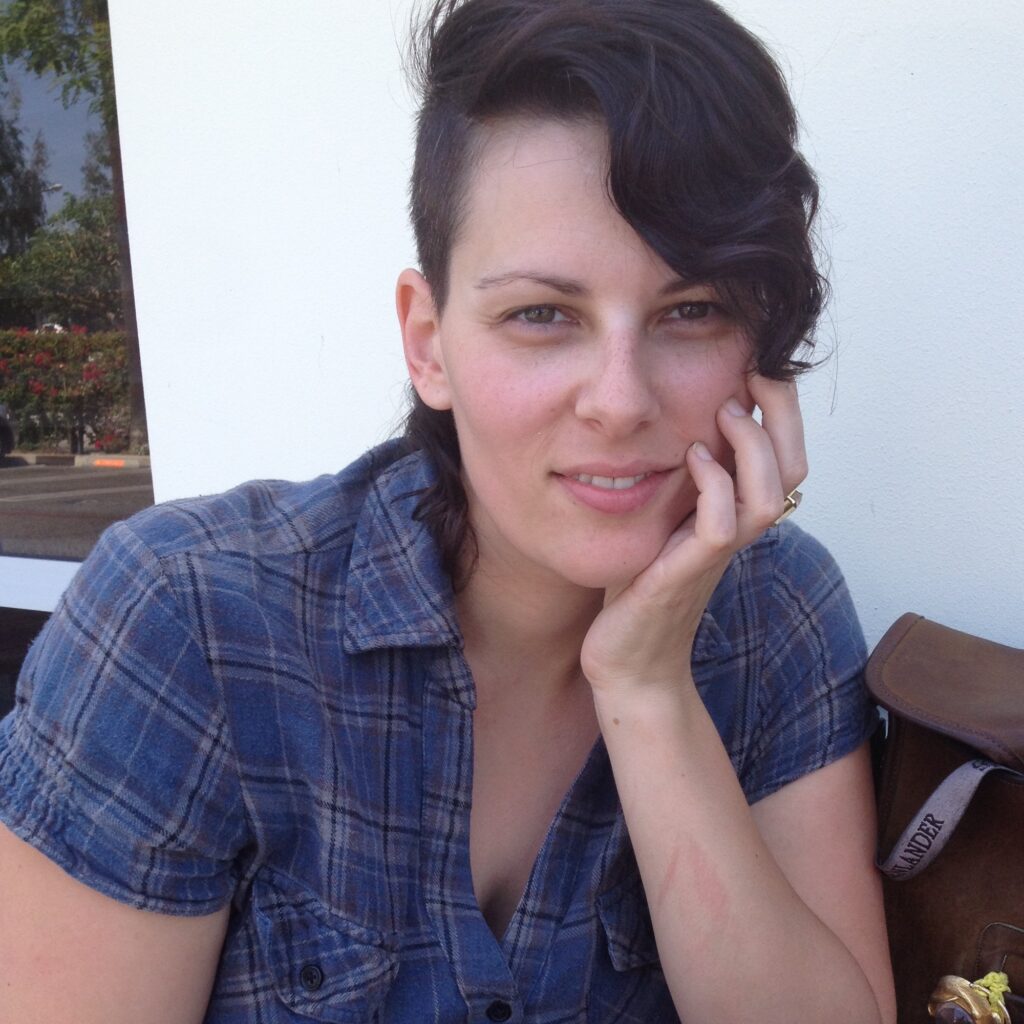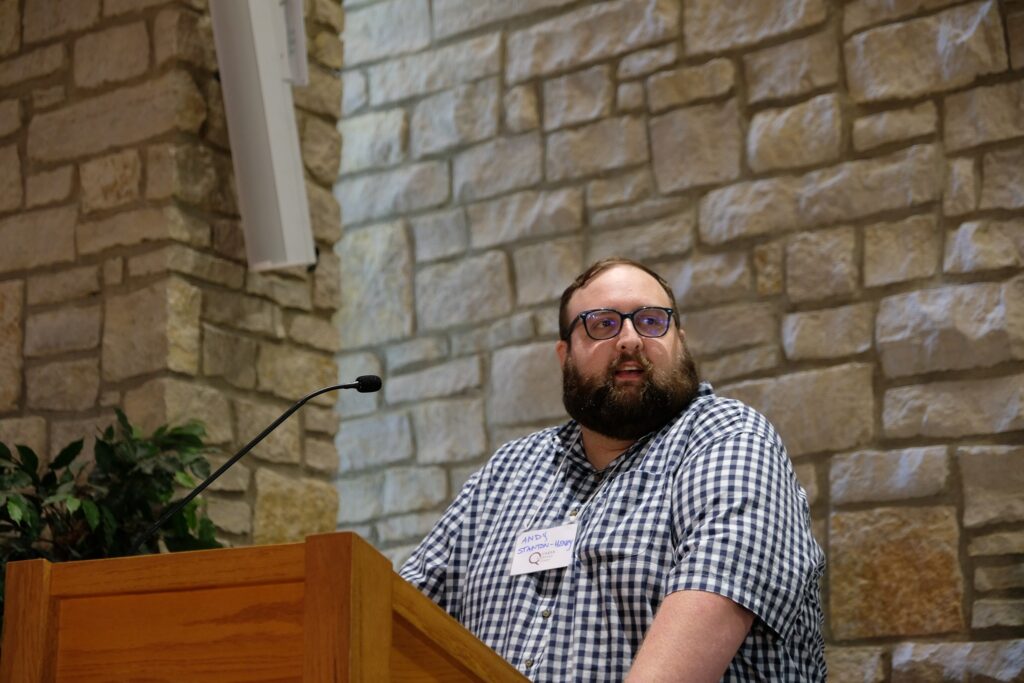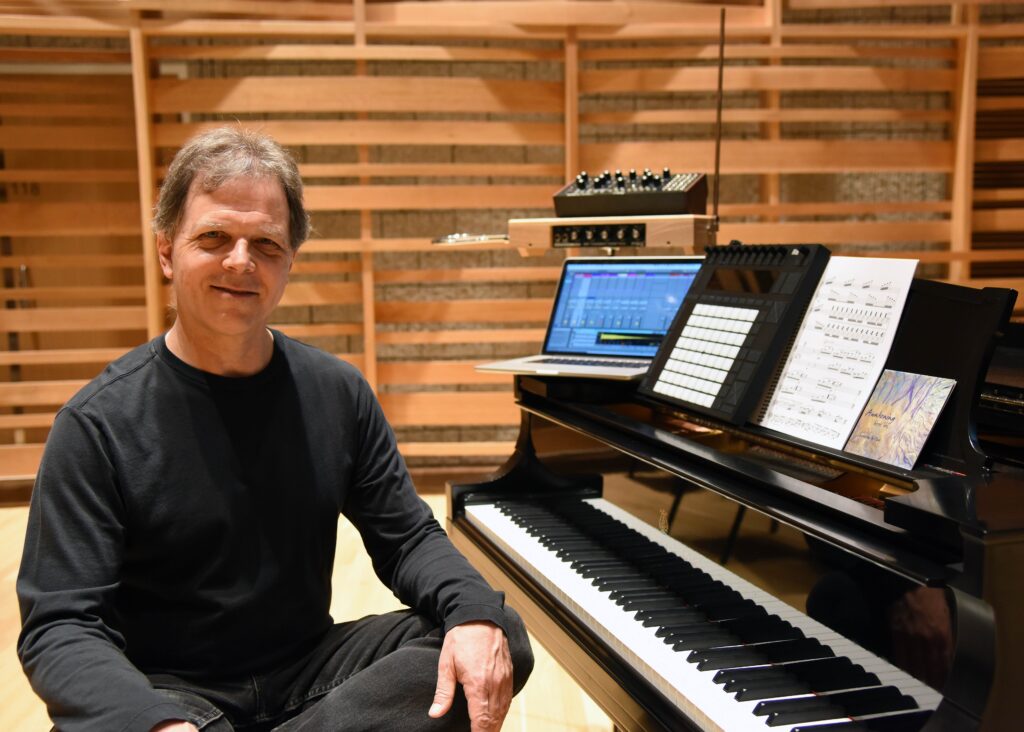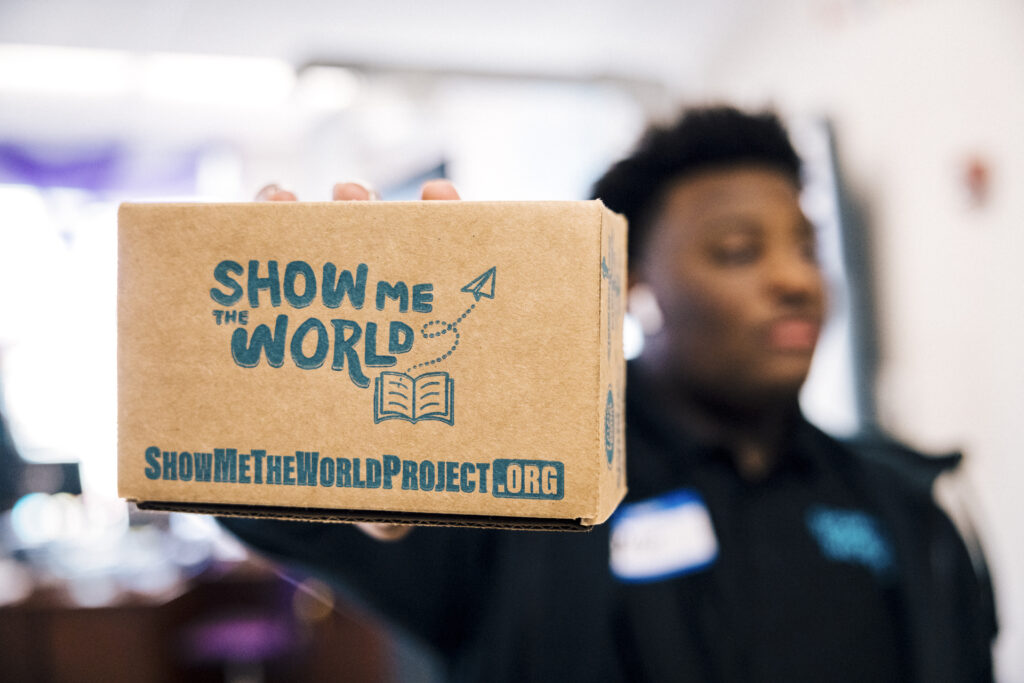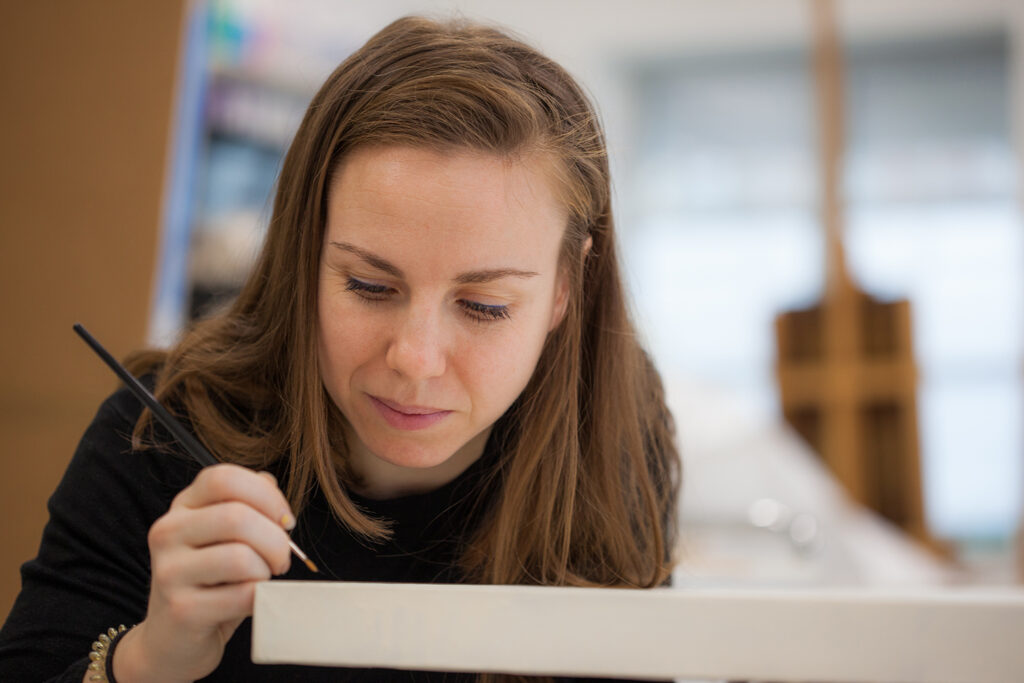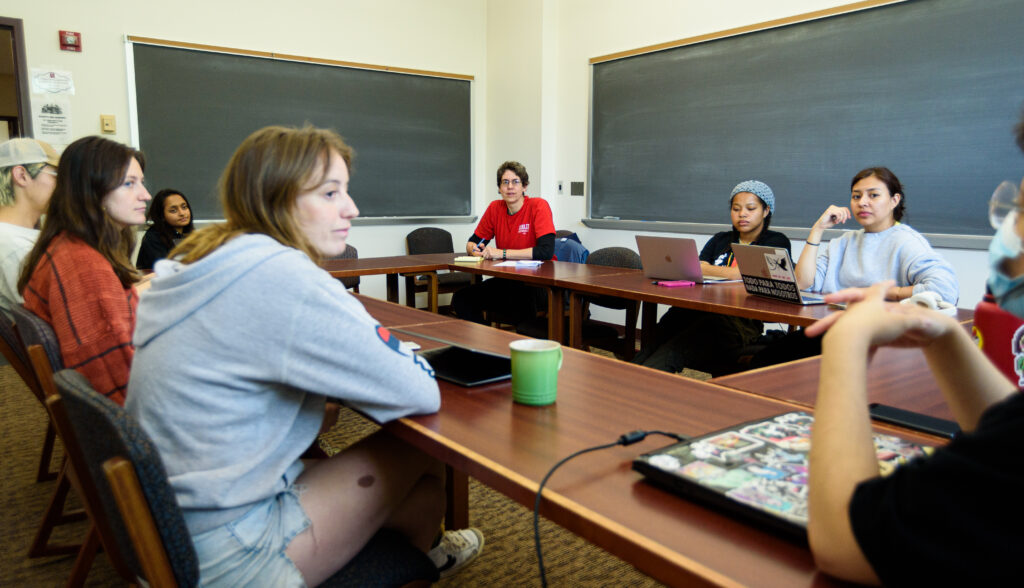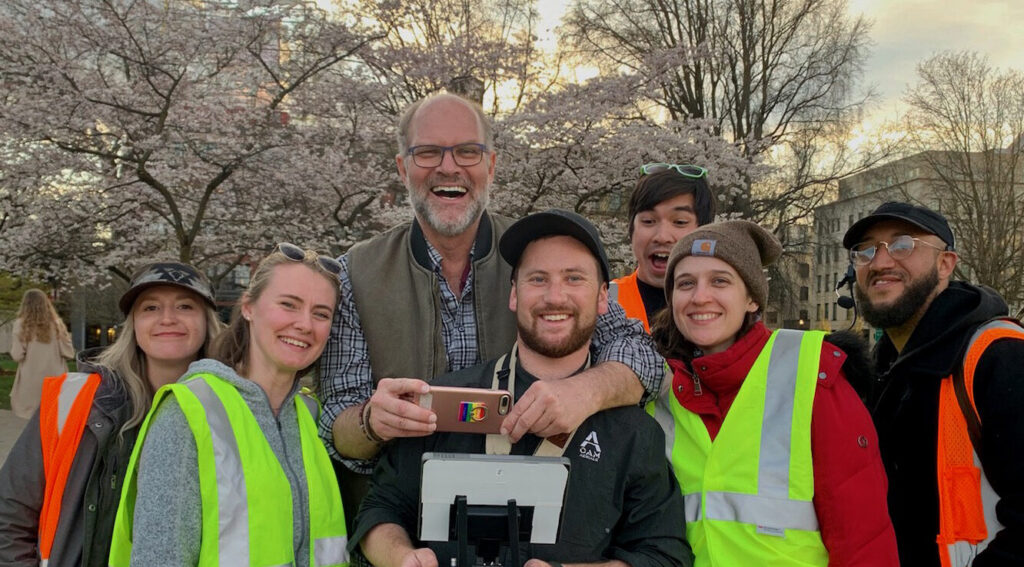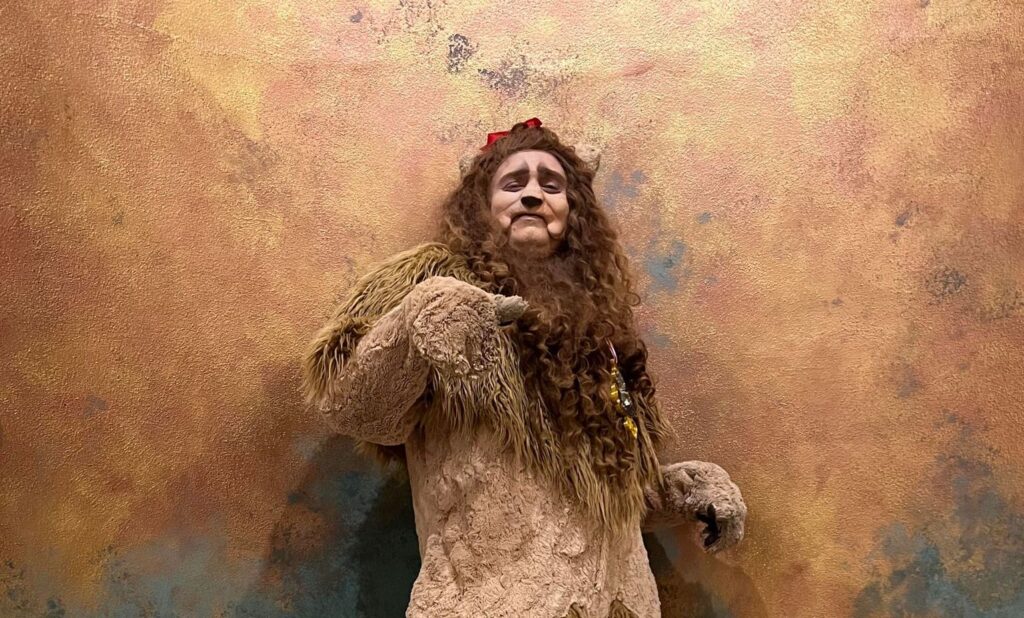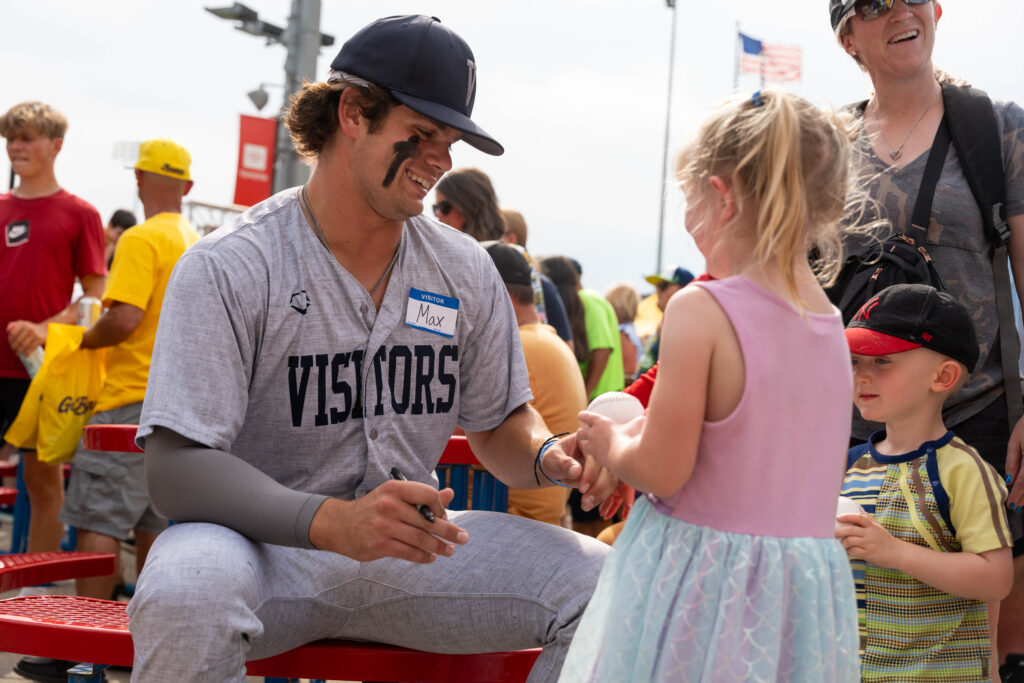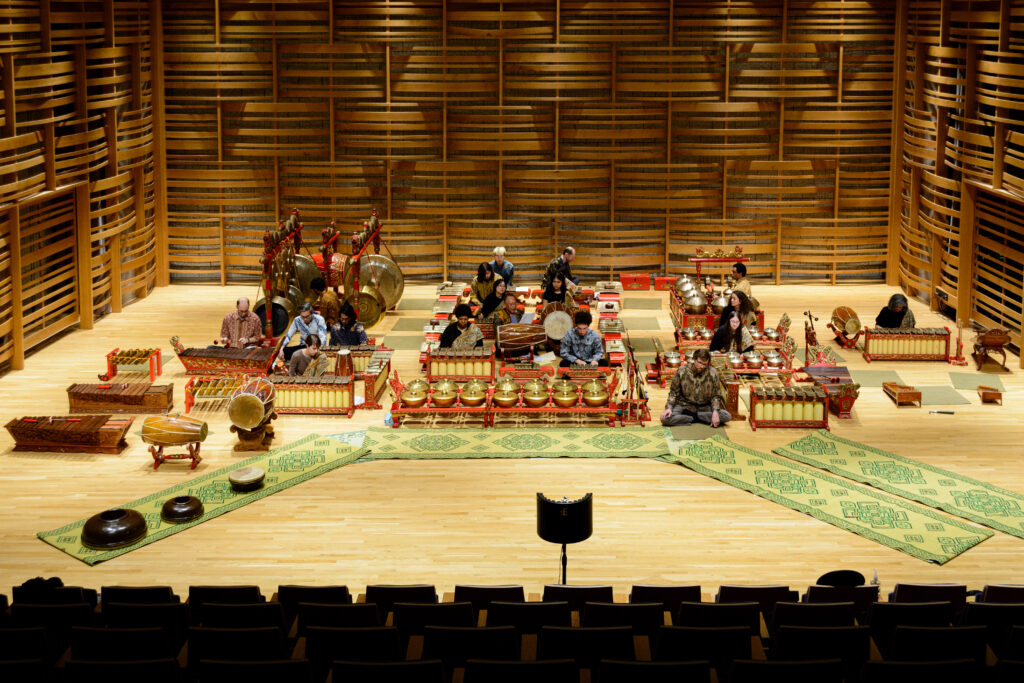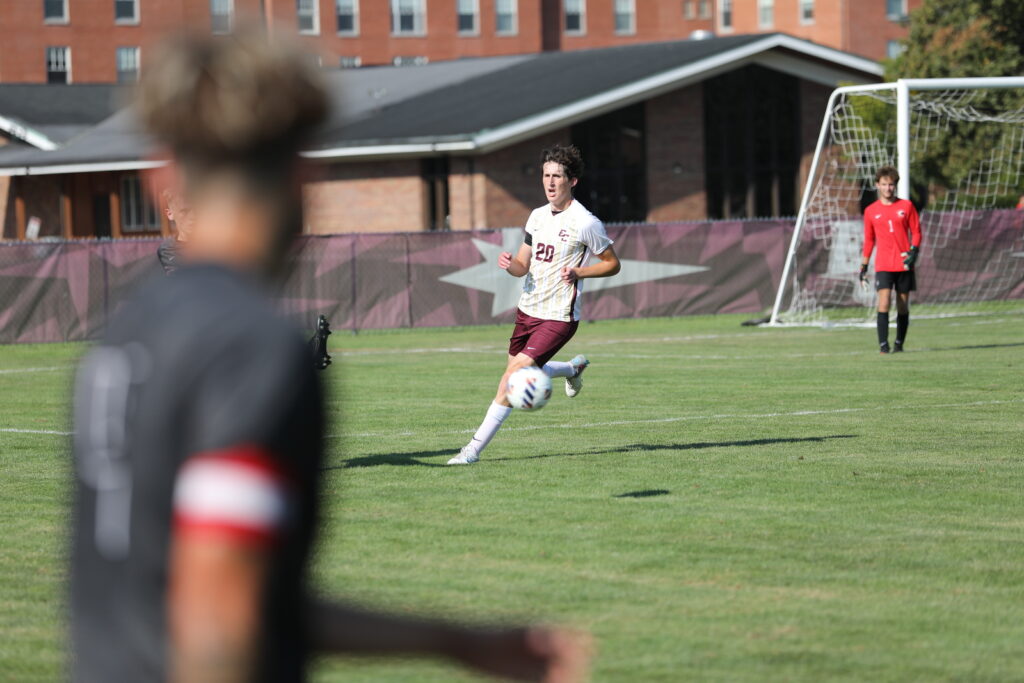Responding to a challenge from President Anne Houtman, new academic programs have been created as part of the College’s innovative path forward.
Liberal arts colleges may not have a reputation for being nimble institutions when it comes to innovation, but that hasn’t deterred Earlham. In 2019, President Anne Houtman called on the faculty for new academic program proposals. The hope: to create new academic programs that both spoke to faculty strengths and would be appealing to today’s incoming college student.
“Our students are driven to make the world a better place through their work, and we are excited to prepare the next generation of change-makers,” says Houtman.
Earlham’s teaching faculty responded to the call with enthusiasm—presenting a number of possible new majors and minors as well as paths for implementation.
Since the original call for proposals, Earlham’s faculty have proposed—and approved—multiple new majors and minors. Earlham students are now able to major in creative writing, data science, media and communications, museum studies and public policy, and minor in equestrian management and quality science. And during the 2021 fall semester, the faculty approved future new majors in business and accounting, as well as new concentrations in computer science.
“It’s sometimes not as obvious to prospective students how the liberal arts will help them get to where they want to go,” says Mike Deibel, associate vice president for academic affairs and professor of chemistry. “We hope that these new majors and minors will encourage many Generation Z students and their parents to give Earlham a closer look.”
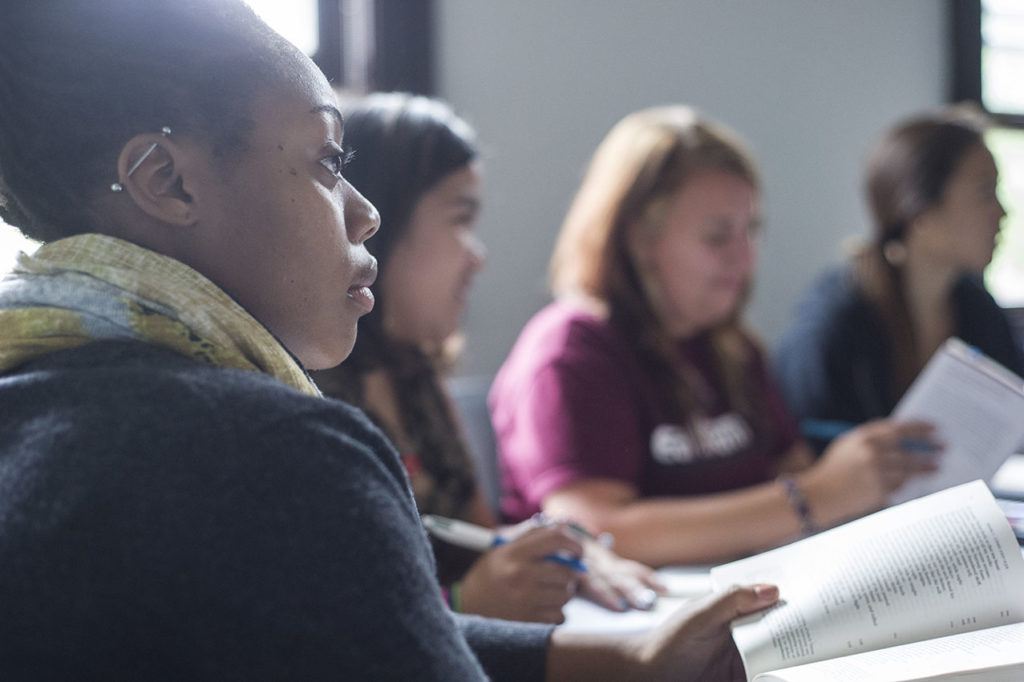
Creative writing
Creative writing as a subject isn’t new to Earlham; English and other majors have taken creative writing courses for years, if not decades, and have found success in a wide range of writing fields. (Just take a look at our many alumni who have become published and successful writers and editors: There’s Julia Berner-Toblin, a managing editor at Grove Atlantic; Emmy award-winner Dan McCoy; novelists Margo Rabb and Mat Johnson; and award-winning poets like Maurice Manning, to name just a few.)
But now, a formalized creative writing major and minor program offers students a structured way to pursue a life and career as a writer. Creative writing students will benefit from faculty advising, alumni connections and hands-on experience—both through internships made possible by the EPIC Advantage, and the College’s literary magazine, The Crucible.
Professor of English Nate Eastman sees creative writing as an inherently “Earlham thing.”
“Life is complicated,” Eastman says. “Art helps people make sense of that complexity in ways that are intellectually, emotionally and spiritually resonant. And Earlham’s mission isn’t just about our students making sense of things. It’s about awakening the teacher within, or, in the case of creative writing, about helping our students create the kinds of art that guide others through a process of self-discovery and change.”
Data science
A burgeoning field that consistently makes Glassdoor’s annual report on the “50 Best Jobs in America,” data science is highly interdisciplinary. Majors learn to work with data from a variety of sources in order to help decision-makers understand the components and complexities of a given situation.
“I enjoy working with our data science majors on projects that start as questions we wonder about daily,” says Fariba Khoshnasib, a visiting assistant professor of mathematics. “It not only helps students learn a great deal of data analysis and forecasting, but also it helps create insight for the future, and it brings us together as a community to know how we can advocate for a brighter future in terms of health, economics and the climate, as data scientists.”
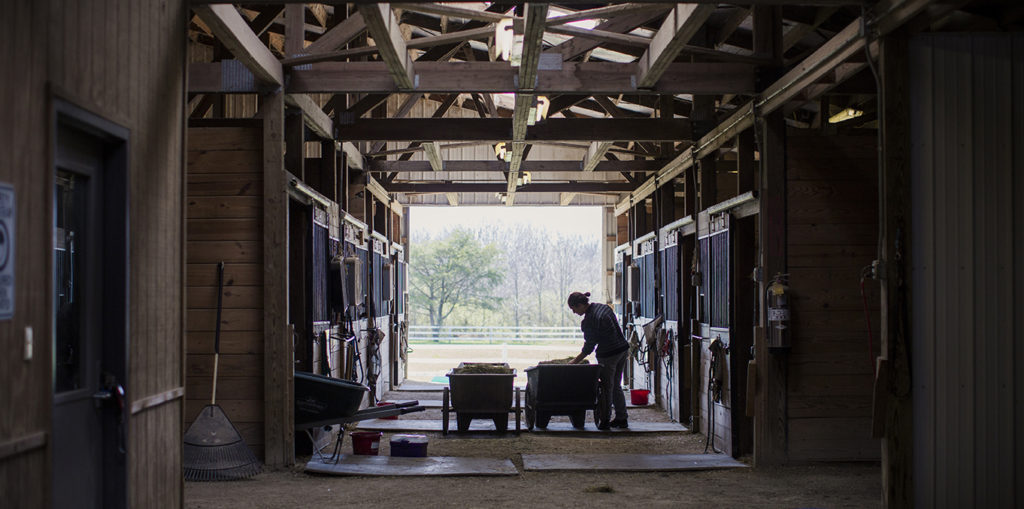
Equestrian management
One of the most unique aspects of life at Earlham is the intense involvement of students in college operations and governance. This involvement is, perhaps, most apparent in the horse barn. As the only student-run college barn co-op in the country, Earlham’s equestrian program stands apart. With a new minor on the books, the hard work these students do in managing the day-to-day care of the horses, teaching riding lessons and maintaining a safe and educational space for both horses and students can be recognized in a big way on their transcript.
Alumni who worked in the barn co-op know firsthand the sheer amount of leadership, hard work and project management that goes into this student-run equestrian program. Now, students who progress through the program are eligible for a minor in equestrian management.
The minor “really showcases the training and the skills and the prowess and maturity that our students gain through our program,” says barn co-op faculty adviser Cynthia Fadem. “This codifies it for the outside world and shows how we’re able to have a student-run barn. These students are working together as an intentional community, solving problems, dealing with controversies and interpersonal issues—and still run the barn, keep the horses healthy, manage the schedule. It shows the benefit of the well-rounded Quaker education we provide.”
Media and communications
A new media and communications major explores how modern life is being shaped by new forms of media. Drawing on faculty expertise from sociology/anthropology, this unique major prepares students to engage with and critique the ways media and communication are used to both empower and oppress.
“Our media and communications program takes an interdisciplinary approach to addressing some of the most pressing social problems of our era, including the challenges of communicating via constantly evolving new technologies,” says Nora Taplin-Kaguru, assistant professor of sociology. “We prepare our students to make a positive impact in the field by teaching a variety of methods from different disciplines, as well as a range of empirical and theoretical approaches to the study of media.”
Students also benefit from internships and volunteer opportunities with campus organizations like the Earlham Word and WECI, Richmond’s public radio station which operates from the lower level of Runyan Center.
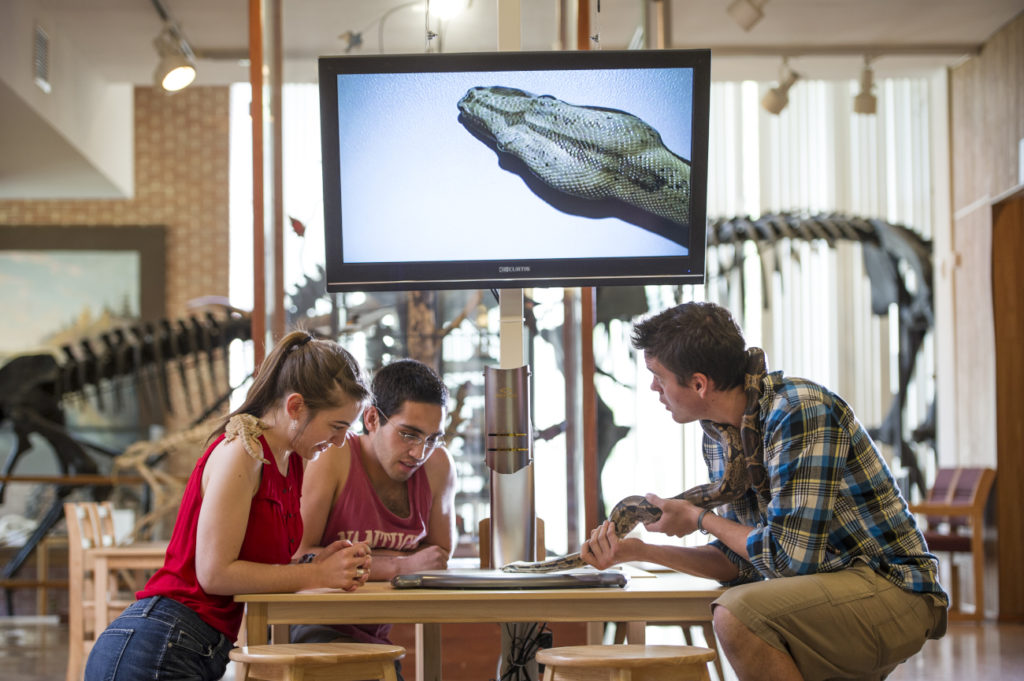
Museum studies
Museum studies is yet another Earlham program with deep roots—and long tusks. The program existed as a minor for many years, and has only grown in popularity with students. Creating a major was the next logical step.
Earlham is the only Great Lakes Colleges Association school with the ability to do comprehensive museum training across disciplines, according to Ann-Eliza Lewis, the collections manager of the Joseph Moore Museum. “Earlham trains students in their disciplines well—they learn how to conduct object-based research and write for their discipline. Students wanting to work in museums need parallel training in exhibit design, collections care, interpretation, and engaging with audiences.”
The major allows students to specialize in a particular museum studies track, depending on their area of interest: African and African American studies; ancient and classical studies; archaeology; art history; biology; earth and environmental science; or history. And with the Joseph Moore Museum of Natural History on campus, as well as collections in the College’s Archives, earth and environmental science, and art departments, students are guaranteed hands-on experience early and often.
“There are a lot of scientists who work in museums—natural history collections, science museums, children’s museums—but there aren’t a lot of museum studies programs designed for scientists,” says Heather Lerner, the director of the Joseph Moore Museum and an associate professor of biology. “Many in science fields have to learn through experience and don’t get the foundational theory. Our program addresses that gap.”
“It’s a discipline that’s liberal arts in nature,” adds Lewis. “It’s multidisciplinary: business, history, the sciences, art, classics—they all bring something. Classes become fun learning labs with students from many majors and class years. They create this little community. It’s exactly what you’re supposed to experience at a liberal arts school.”
Public policy
For Earlhamites seeking to enter the public sector, a new major in public policy offers a uniquely Earlham way of doing so. Professor of Politics, Policy and Environmental Sustainability Thor Hogan brings his background in public policy and a decade of experience working in think tanks to the classroom for these students.
“Government is one of the largest employers in the United States. The national government employs nearly three million people directly, while state and local governments employ nearly 20 million people,” says Hogan. “There are also millions of jobs that exist at the edges of the public sector—ranging from contractors and think tanks to non-profit organizations and advocacy groups. Advancement within the public sector is increasingly defined by educational attainment.”
Drawing primarily on courses in politics, economics and statistics, the public policy program prepares students to be change agents, and courses in environmental sustainability and urban affairs offer special insight into relevant topics. As a multidisciplinary program, public policy “mixes the strengths of a liberal arts approach with the desires of students to obtain knowledge and skills to pursue a rewarding career,” says Hogan.” “Given its focus on preparing students to dedicate their lives to public service, our objective is to prepare future leaders who want to make the world a better place.”
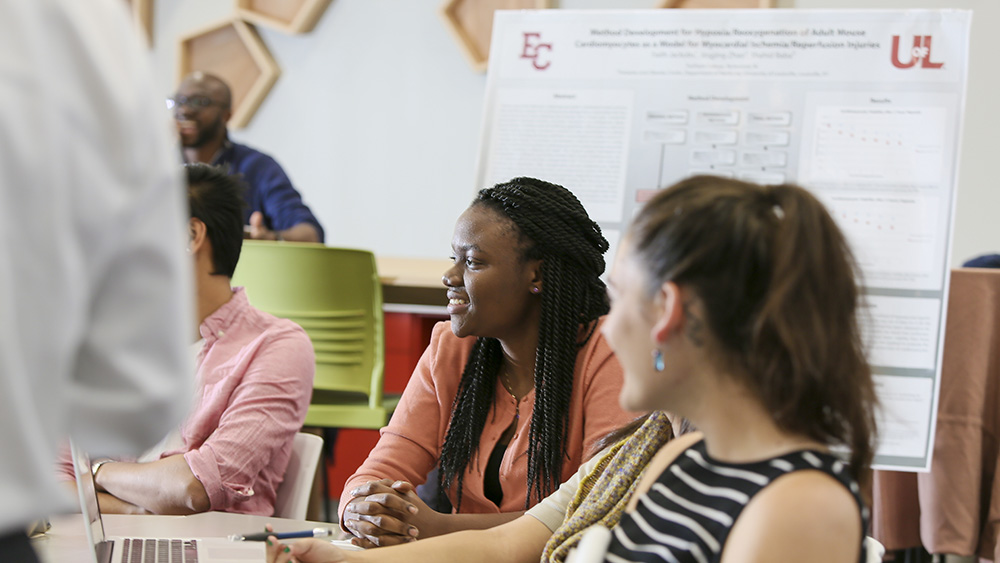
Quality science
Earlham faculty have pioneered a new way of offering an academic program through a partnership with Pathway for Patient Health, an organization with a mission to promote the life science industry, particularly as it relates to jobs in quality assurance and safety.
The new minor in quality science uses three courses from Pathway to Patient Health, taught by industry experts and facilitated by Earlham faculty, as well as two additional Earlham courses. Upon completion of the program, students receive a certificate in quality science, are paired with an industry mentor and receive access to a job portal used by Pathway for Patient Health’s partner employers.
“Earlham was an early adopter of the Pathway for Patient Health program, and we were the first liberal arts college to work with them,” says Corinne Deibel, registrar and professor of chemistry.
“For students in the life sciences, there are three possible outcomes: graduate school, professional or medical school, or a job in the industry,” says Associate Vice President of Academic Affairs and Professor of Chemistry Mike Deibel. “While Earlham does a phenomenal job of preparing students for all these outcomes, we have had the greatest historic strengths in the first two paths. This program elevates the third path and complements our existing strengths.”
Saujan Kafle, a 2018 chemistry graduate, joined the quality control team at Moderna Therapeutics as a specialist in their newly-formed digital/informatics group this fall. Although he graduated before the current minor was in place, he sees the value this program holds for current and future Earlhamites.
“The scope of quality science is wide in the pharmaceutical industry,” said Kafle. “Every drug goes through a rigid quality assessment before regulatory approval. It’s a field that is only going to keep growing with increasing demands for pharmaceutical products, drugs and medical devices alike. For Earlhamites, knowledge of quality science will give them a head start in landing jobs in the industry.”
3+1 education program
In addition to these new majors and minors, Earlham undergraduates now have the opportunity to earn both their bachelor of arts and a master of arts in teaching (M.A.T.) in just four years through the Earlham Graduate Programs in Education. This 3+1 education program also provides graduates with licensure to teach grades 5-12 in Indiana, furthering Earlham’s mission to “awaken the teacher within” and providing regional schools with much-needed, highly-qualified teaching candidates.
More innovation
EPIC Journey: The EPIC Journey is Earlham’s signature program for helping students integrate academics with hands-on experiences through internships, collaborative research, community projects and more. A student’s EPIC Journey is a four-year exploration of the liberal arts that integrates excellent classroom experiences with transformative learning experiences to prepare students exceptionally well for life beyond Earlham.
Applied minors: Earlham’s faculty have developed a number of uniquely hands-on, interdisciplinary programs called applied minors. These special programs have a few extra requirements that set them apart from traditional minors. First, they must be interdisciplinary, including courses from more than one department. Second, they must include a hands-on element for students, such as a required internship or applied project.
Story by Jen Gose.
